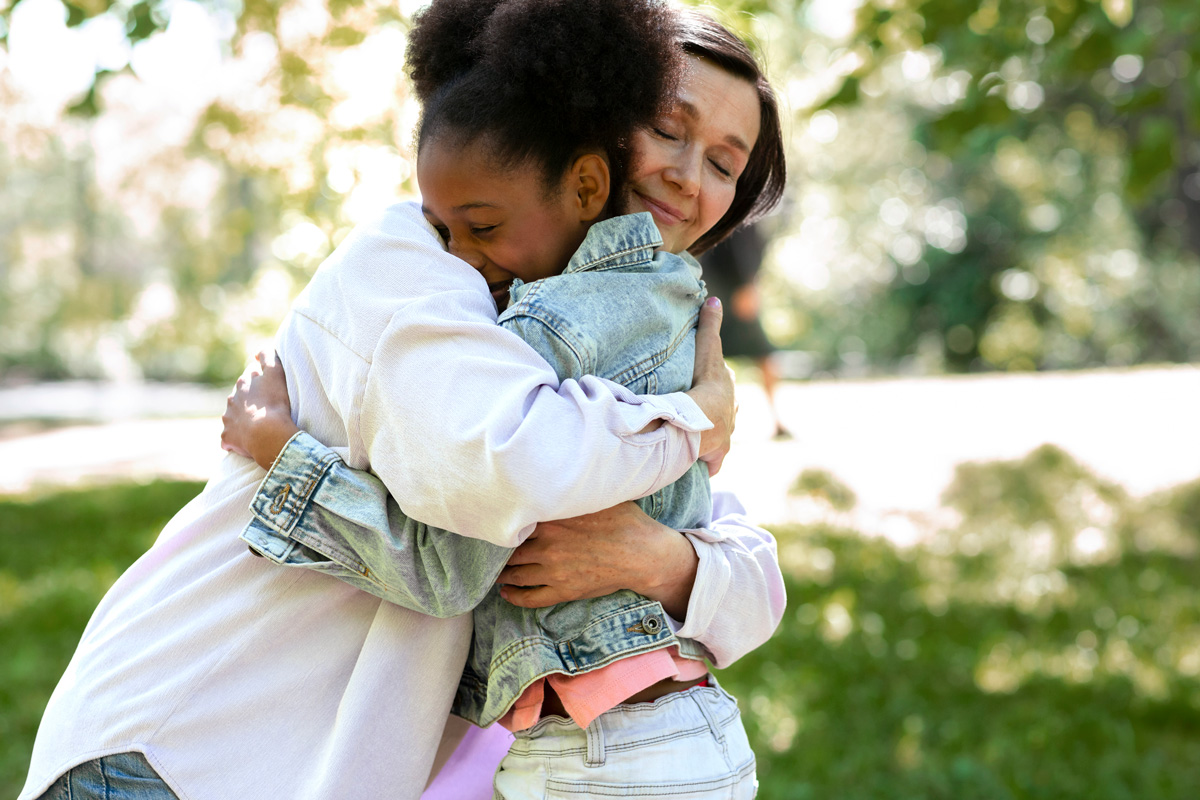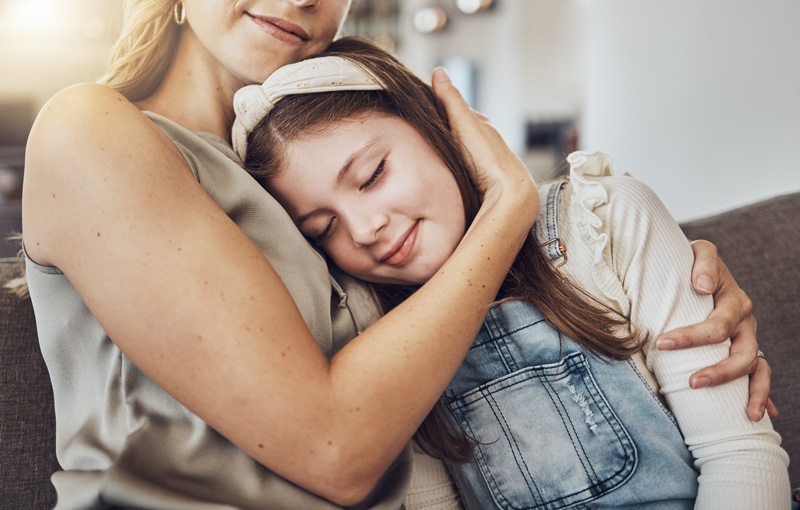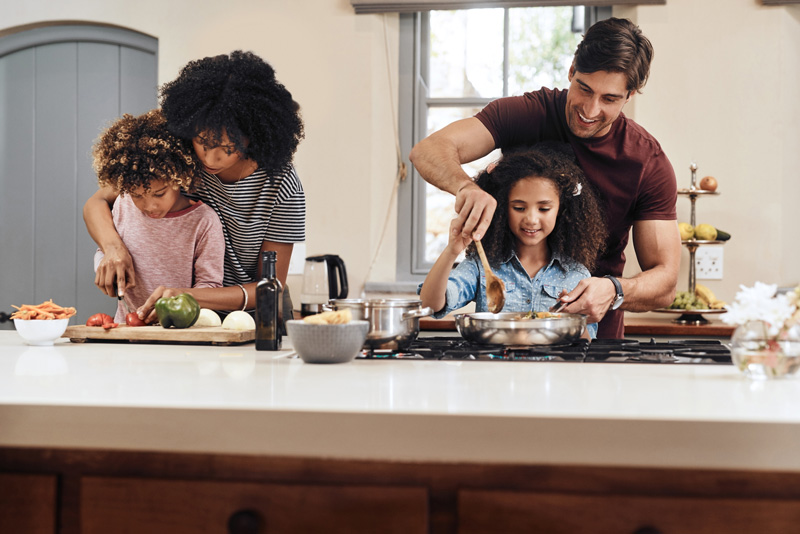Parenting is a rewarding yet challenging journey, and when your child experiences anxiety, it can add an extra layer of complexity. Unfortunately, anxiety in children is more common now than ever. Close to 1 out of 10 children aged 3 to 17 were diagnosed with an anxiety disorder in 2016 (DeAngelis, 2022), but now, the numbers have doubled to 20.5% (Zeytinoglu et al., 2021). Children are more alert and apprehensive about unsafe events or situations, especially after the pandemic and events such as school shootings, wars, or political and racial tensions. Although it is normal to worry, excessive worries can lead to anxiety disorders and negatively impact a child’s emotional well-being and daily life. Children who suffer from anxiety will show changes in their mood (e.g., irritability or mood swings), and changes in their behaviors (e.g., avoiding situations, people, triggers), and may report physiological symptoms (e.g., stomachaches or headaches). Fortunately, parents can play a pivotal role in supporting their anxious child through evidence-based strategies that promote emotional resilience and well-being. Here are five ways you can help your child cope with anxiety.
Create a Nurturing Environment Through Parenting:
The home environment significantly influences a child’s emotional well-being. Parents can create a predictable routine that provides a sense of security. Consistent bedtime, mealtime, and designated family time can offer a stable and reassuring environment. Additionally, regular displays of affection, active listening, and validating a child’s feelings can strengthen the bond between you and your child, which is essential for emotional development. When children feel secure and understood, it helps reduce anxiety and fosters emotional resilience.
Teach Coping Skills With Evidence-Based Parenting:
Equipping children with effective coping skills empowers them to navigate and manage anxiety. Cognitive-Behavioral Therapy (CBT) is an evidence-based approach that has proven successful in helping children develop coping mechanisms. Parents can incorporate CBT principles at home by encouraging positive self-talk, identifying feelings, and helping children reframe negative thoughts. Additionally, teaching mindfulness techniques, such as deep breathing exercises and guided meditation, can also be beneficial. These practices have been shown to reduce anxiety symptoms and promote a sense of calm. By instilling these coping skills early on, you can equip your child with tools to manage anxiety throughout their lives.
Encourage Gradual Exposure:
It’s normal for parents to want to remove their child from a situation if they feel upset or anxious. While this may provide immediate relief, removing your child from anxiety-provoking situations can reinforce anxiety in the long term. It also deprives your child of the opportunity to learn that they can face their fears. Gradual exposure is a helpful strategy to confront and overcome their fears. Research supports the efficacy of gradual exposure as a powerful tool for managing anxiety in children (Schopf et al., 2020). You can adapt this approach by first identifying specific triggers or situations that cause anxiety and then gradually exposing your child in a controlled and supportive manner. For example, if a child is anxious about social interactions, parents can start with small, manageable social situations and gradually increase the complexity. Using praise and small rewards associated with these exposures can enhance the child’s motivation to practice. This process helps desensitize a child to anxiety-provoking situations and, more importantly, builds confidence over time.
Promote a Healthy Lifestyle With Parenting Guidance:
The connection between physical and mental health is well-established. Parents can positively impact their child’s mental well-being by promoting a healthy lifestyle. Encouraging regular physical activity, a balanced diet, and adequate sleep can contribute to overall emotional resilience. Studies have shown that exercise directly impacts anxiety reduction by releasing neurotransmitters like endorphins and promoting better sleep (Kandola & Stubbs, 2020.) Additionally, a nutritious diet rich in essential nutrients supports brain function and emotional regulation. By prioritizing a healthy lifestyle, parents create a foundation for their children to better cope with anxiety.
Seek Professional Support:
While using parent-led evidence-based strategies can be highly effective with an anxious child, it’s essential to recognize when professional intervention is needed. Reaching out to a qualified mental health therapist can provide specialized guidance and support tailored to the child’s unique needs. Mental health professionals are trained to assess and treat anxiety disorders in children. They may use evidence-based therapeutic techniques, such as CBT and gradual exposure, to address specific concerns. Seeking qualified professional support early on can make a significant difference in a child’s ability to manage anxiety and thrive.
If You Are Looking For Support For Parenting an Anxious Child, Reach Out to a Teen Therapist in Arlington, MA Today!
Parents have the power to make a lasting impact on their children’s emotional well-being by implementing evidence-based strategies. Creating a nurturing environment, teaching coping skills, encouraging gradual exposure, promoting a healthy lifestyle, and seeking professional support are integral components of a comprehensive approach. By embracing these strategies, parents empower their children to navigate anxiety with resilience and develop the skills needed for a lifetime of emotional well-being.
- Learn More About our Team Here
- Fill Out Our Contact Form Here
- Begin Receiving the Support You Need
Other Mental Health Services Offered at Bain Health and Wellness Center
The Bain Health and Wellness Center (BainHWC) offers in-person and virtual therapy for youth experiencing anxiety, ADHD, disruptive disorder, autism, depression, trauma, OCD, and more. All mental health therapists at BainHWC are trained in evidence-based treatment and have several years of experience working with children, teens, and young adults. In fact, we are among the few therapists in Massachusetts trained in Supportive Parenting for Anxious Childhood Emotions (SPACE), an evidence-based parent-based treatment program for children and adolescents with anxiety, OCD, and related issues.
Reach out today to begin your free 20-minute consultation. We would be happy to discuss what you are looking for and make recommendations on ways to proceed to help your child, you, and your family.
Reference:
DeAngelis, T. (2022, October 1). Anxiety among kids is on the rise. Wider access to CBT may provide needed solutions. Monitor on Psychology, 53(7). https://www.apa.org/monitor/2022/10/child-anxiety-treatment
Kandola, A., & Stubbs, B. (2020). Exercise and Anxiety. Advances in experimental medicine and biology, 1228, 345–352. https://doi.org/10.1007/978-981-15-1792-1_23.
Schopf, K., Mohr, C., Lippert, M. W., Sommer, K., Meyer, A. H., & Schneider, S. (2020). The role of exposure in the treatment of anxiety in children and adolescents: protocol of a systematic review and meta-analysis. Systematic reviews, 9(1), 96. https://doi.org/10.1186/s13643-020-01337-2
Zeytinoglu, S., et al., (2021). A developmental pathway from early behavioral inhibition to young adults’ anxiety during the COVID-19 pandemic. Journal of the American Academy of Child and Adolescent Psychiatry. https://www.jaacap.org/article/S0890-8567(21)00073-3/fulltext








